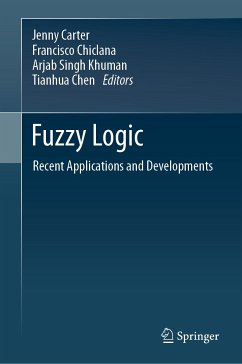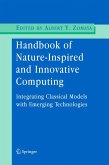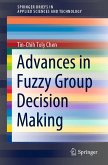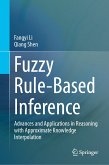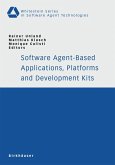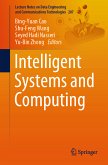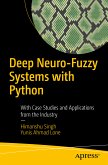Since its inception, fuzzy logic has attracted an incredible amount of interest, and this interest continues to grow at an exponential rate. As such, scientists, researchers, educators and practitioners of fuzzy logic continue to expand on the applicability of what and how fuzzy can be utilised in the real-world.
In this book, the authors present key application areas where fuzzy has had significant success. The chapters cover a plethora of application domains, proving credence to the versatility and robustness of a fuzzy approach. A better understanding of fuzzy will ultimately allow for a better appreciation of fuzzy. This book provides the reader with a varied range of examples to illustrate what fuzzy logic can be capable of and how it can be applied.
Dr. Jenny Carter is a Senior Lecturer in the Department of Computer Science at the University of Huddersfield, UK. Her other publications include the Springer books, Transnational Higher Education in Computing Courses, and Higher Education Computer Science. Dr. Tianhua Chen is a Senior Lecturer in Artificial Intelligence with the Department of Computer Science at the University of Huddersfield. Dr. Francisco Chiclana is a Professor of Computational Intelligence and Decision Making in the School of Computer Science and Informatics at De Montfort University, Leicester, UK. Dr. Arjab Singh Khuman is a Senior Lecturer and Researcher at the same institution.
The text will be ideal for individuals new to the notion of fuzzy, as well as for early career academics who wish to further expand on their knowledge of fuzzy applications. Thebook is also suitable as a supporting text for advanced undergraduate and graduate-level modules on fuzzy logic, soft computing, and applications of AI.
Dr. Jenny Carter is a Senior Lecturer in the Department of Computer Science at the University of Huddersfield, UK. Her other publications include the Springer books, Transnational Higher Education in Computing Courses, and Higher Education Computer Science. Dr. Tianhua Chen is a Senior Lecturer in Artificial Intelligence with the Department of Computer Science at the University of Huddersfield. Dr. Francisco Chiclana is a Professor of Computational Intelligence and Decision Making in the School of Computer Science and Informatics at De Montfort University, Leicester, UK. Dr. Arjab Singh Khuman is a Senior Lecturer and Researcher at the same institution.
Dieser Download kann aus rechtlichen Gründen nur mit Rechnungsadresse in A, B, BG, CY, CZ, D, DK, EW, E, FIN, F, GR, HR, H, IRL, I, LT, L, LR, M, NL, PL, P, R, S, SLO, SK ausgeliefert werden.
Es gelten unsere Allgemeinen Geschäftsbedingungen: www.buecher.de/agb
Impressum
www.buecher.de ist ein Internetauftritt der buecher.de internetstores GmbH
Geschäftsführung: Monica Sawhney | Roland Kölbl | Günter Hilger
Sitz der Gesellschaft: Batheyer Straße 115 - 117, 58099 Hagen
Postanschrift: Bürgermeister-Wegele-Str. 12, 86167 Augsburg
Amtsgericht Hagen HRB 13257
Steuernummer: 321/5800/1497
USt-IdNr: DE450055826

